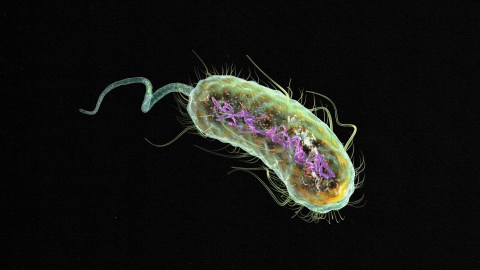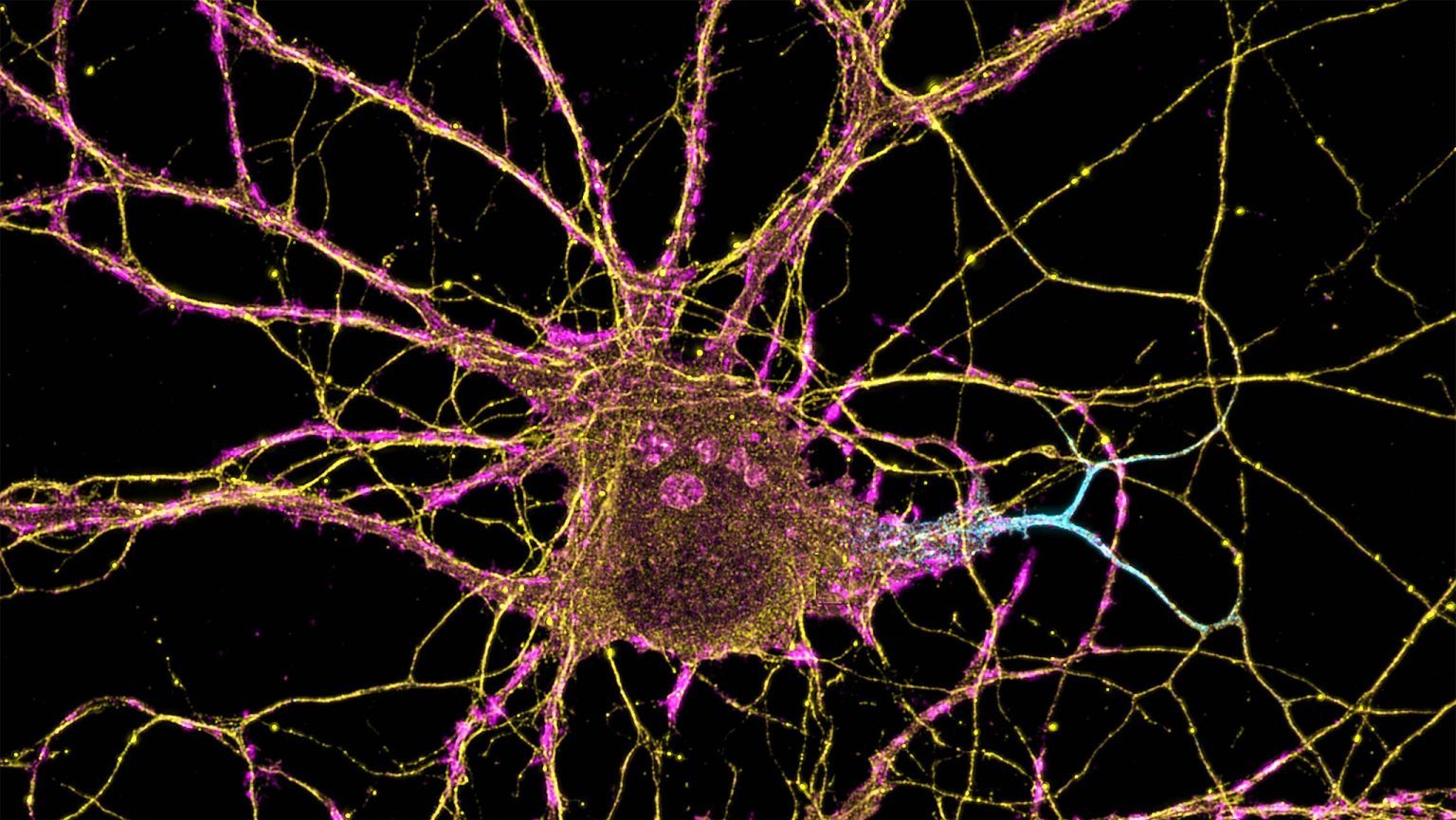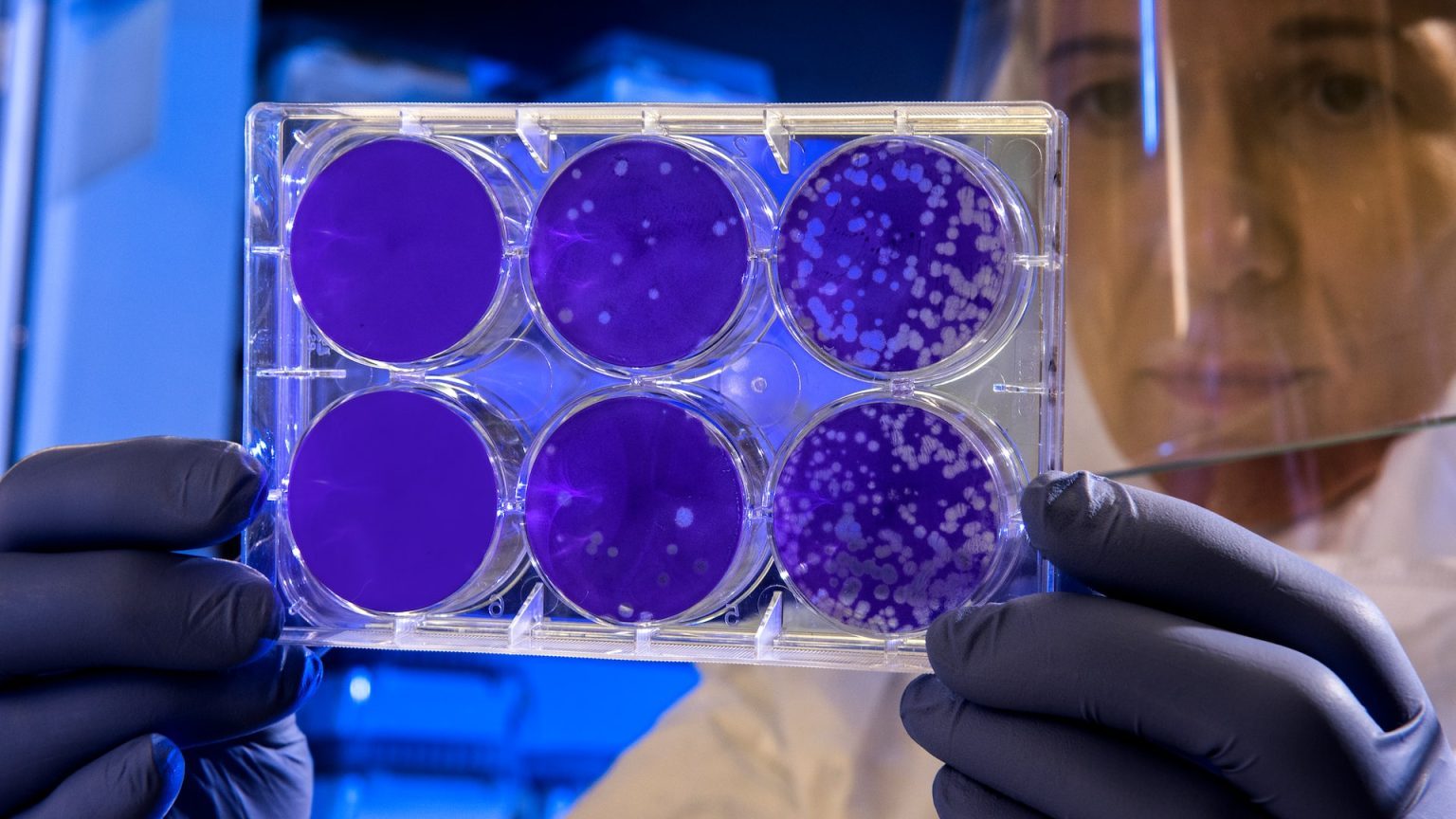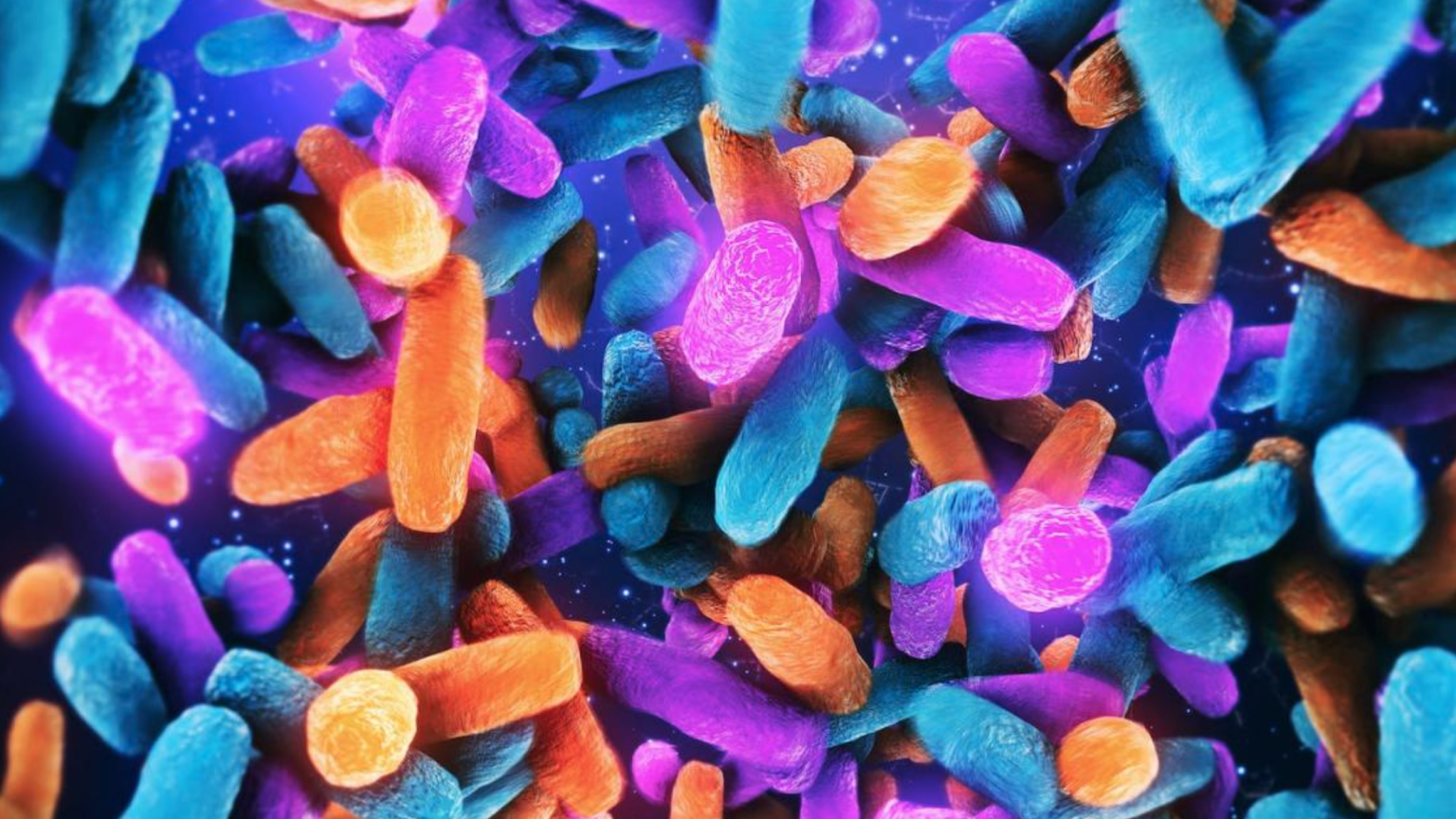How gut bacteria connect to Parkinson’s disease

It can start small: a peculiar numbness; a subtle facial tic; an inexplicably stiff muscle. But then time goes by — and eventually, the tremors set in.
Roughly a million people in the United States (and roughly 10 million people worldwide) live with Parkinson’s disease, a potent neurological disorder that progressively kills neurons in the brain. As it does so, it can trigger a host of crippling symptoms, from violent tremors to excruciating muscle cramps, terrifying nightmares and constant brain fog. While medical treatments can alleviate some of these effects, researchers still don’t know exactly what causes the disease to occur in the first place.
A growing number of studies, however, are suggesting that it may be tied to an unlikely culprit: bacteria living inside our guts.
Every one of us has hundreds or thousands of microbial species in our stomach, small intestine and colon. These bacteria, collectively called our gut microbiome, are usually considerate guests: Although they survive largely on food that passes through our insides, they also give back, cranking out essential nutrients like niacin (which helps our body convert food into energy) and breaking down otherwise indigestible plant fiber into substances our bodies can use.
As Parkinson’s advances in the brain, researchers have reported that the species of bacteria present in the gut also shift dramatically, hinting at a possible cause for the disease. A 2022 paper published in the journal Nature Communications recorded those differences in detail. After sequencing the mixed-together genomes of fecal bacteria from 724 people — a group with Parkinson’s and another without — the authors saw a number of distinct changes in the guts of people who suffered from the disease.
The Parkinson’s group had dramatically lower amounts of certain species of Prevotella, a type of bacterium that helps the body break down plant-based fiber (changes like this in gut flora could explain why people with Parkinson’s disease often experience constipation). At the same time, the study found, two harmful species of Enterobacteriaceae, a family of microbes that includes Salmonella, E. coli and other bugs, proliferated. Those bacteria may be involved in a chain of biochemical events that eventually kill brain cells in Parkinson’s patients, says Tim Sampson, a biologist at Emory University School of Medicine and coauthor of the study.
At first glance, the relationship between bacteria and brain disease isn’t exactly obvious. How can a change in gut microbes kick off a devastating neurodegenerative disorder? The relationship between the two may seem counterintuitive — but Sampson says it comes down to the subtle ways that the brain and the gut are connected.
In the walls of the intestines, a network of neurons called the enteric nervous system lets the body sense what’s going on in the gut and respond accordingly. This circuitry controls muscle movement, local blood flow, secretion of mucus and other essential digestive functions.
Since the cells of the enteric nervous system are embedded in the gut wall, many of them come into close contact with the lumen — the cavity of the gut that contains the microbiome — where they can interact directly with biochemicals created by bacteria. Some of these are sticky proteins called curli (pronounced CURL-eye) that may be implicated in Parkinson’s.
Under normal circumstances, curli proteins let Enterobacteria build biofilms, the gooey mats that protect the microbes and help them stay put in the gut. Yet if a curli molecule touches a common protein created by nerve cells — called alpha-synuclein — that protein begins to misfold and form a dangerous mass called an aggregate. Once created, these aggregates can spread widely though the nervous system, leapfrog from cell to cell and eventually enter the brain through the vagus nerve, the main pathway that carries signals between the brain and the gut. It’s thought that in some cases of Parkinson’s in humans, changes in the gut microbiome may activate that process, says Emeran Mayer, a gastroenterologist and neuroscientist at UCLA and coauthor of a recent overview of the gut-brain connection in the Annual Review of Medicine.
Suspicion that the vagus plays a key role in neurodegenerative disease has been growing in recent years. A 2017 study in the journal Neurology, Mayer notes, showed that “If you cut the vagus nerve, it decreases the risk for Parkinson’s disease. That’s a pretty strong indication that … this degenerative material is transported, apparently, through the vagus nerve.”
Over the past few decades, a number of animal studies have shown that the vagus provides a physical conduit that molecules can use to move between the gut and brain — but although this neurological superhighway could play an important role in Parkinson’s, it’s still not clear if the nerve is a lynchpin in causing the disease itself.
In addition to aggregates moving through the vagus, different triggers — like the lipids, vitamins and other organic compounds that gut bacteria produce — could travel through blood vessels to the brain, where they may cause inflammation and damage tissue. Likewise, says David Hafler, a neuroimmunologist at Yale University, immune cells that are activated in the gut may contribute to the neurological damage and dysfunction that occurs in Parkinson’s.
These immune cells, called T cells, can migrate out of the gut, enter the bloodstream and cross the blood-brain barrier, where they ultimately may kill off neurons. This sort of autoimmune response is the driver for other neurological diseases like multiple sclerosis, Hafler reasons, so it’s feasible that it plays a role in Parkinson’s as well. In both diseases, changes in the gut microbiome could be the potential trigger.
There’s already strong evidence for this idea. In 2016, Sampson found a direct connection between gut microbes and Parkinson’s disease: Using fecal samples from Parkinson’s patients, Sampson inoculated the guts of germ-free mice (animals with no naturally occurring microbiome), and the animals quickly developed Parkinson’s symptoms. Today, using the new genetic survey of gut microbes he and his colleagues published in Nature Communications, he’s narrowing in on a few microbe families and using similar methods to reveal which precise species are the culprits.
Sampson’s approach comes with some caveats: Parkinson’s disease, after all, might be linked to multiple bacteria interacting in complex ways — so there likely won’t be a single smoking gun. It’s also not totally clear if changes in the microbiome are the root cause or if they just accelerate damage already taking place in the brain. The complexity of the microbiome is mind-boggling: There are hundreds of different types of bacteria involved, and each creates myriad molecules that affect digestion, the immune system and other important bodily functions. Sorting through all those components and identifying how they change in the face of disease will be an important next step.
And so, as tantalizing as the links between the microbiome and Parkinson’s may be, it could be decades before people who suffer from the disorder can reap any tangible benefits. Many of the researchers examining those links, like Mayer, also warn patients to be of wary of sweeping claims about drugs, supplements or even fecal transplants — seeding the gut with microbes from another, healthy person — that “treat” Parkinson’s by altering the microbiome.
“A lot of people make a lot of money selling individuals supplements, telling you that they’re going to slow your cognitive decline or prevent Parkinson’s disease,” says Mayer. But, he adds, “we don’t know the causal roles of the microbiome for sure. We know it from animal studies, so we have indirect evidence for it — but it’s been difficult to show in humans without a doubt that the microbes, and some of their signal molecules, play the main causal role.”
Until definitive answers are found, researchers like Mayer will continue to chip away at the problem, microbe by microbe.
This article originally appeared in Knowable Magazine, a nonprofit publication dedicated to making scientific knowledge accessible to all. Sign up for Knowable Magazine’s newsletter.





